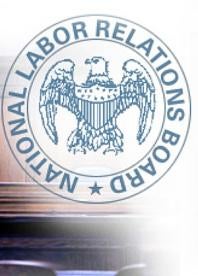The presumptive appropriateness of a single site unit of production and maintenance employees has for many years been a given under well-established law of the National Labor Relations Board. J & L Plate, Inc., 310 NLRB 429 (1993). The NLRB typically defines a production and maintenance bargaining unit using the description “all hourly paid production and maintenance employees” employed at a designated location. This unit description can be found in numerous NLRB cases. See e.g., Allis Chalmers Corp., 237 NLRB 290 (1978). Production operations and maintenance operations were typically not separated for unit purposes, but rather grouped together and distinguished from other types of work (e.g., building and construction).
Background
In Specialty Healthcare, 357 NLRB No. 83 (2011), the NLRB formulated a new standard for determining appropriate bargaining units. Under this decision, if a petitioned-for unit is for a clearly identifiable group of employees, the Board will presume the unit is appropriate and it falls to the employer to show that a larger group of employees share an "overwhelming" community of interest with those in the petitioned-for unit. Although Specialty Healthcare involved an acute care hospital, the NLRB applied this test in Nestle-Dreyer’s Ice Cream, Inc., 361 NLRB No. 95 (2014). The NLRB reasoned that maintenance employees were identifiable as a separate group: they formed their own department; worked in different job classifications; used different skills; and performed functions different than production employees. Further, explained the NLRB, the employer failed to demonstrate that maintenance employees shared an “overwhelming community” of interest with production employees because there was no significant interchange between production and maintenance employees and they did not have common supervision with production employees. Maintenance employees, in the NLRB’s view, did not constitute an arbitrary grouping of employees and a bargaining history for a production and maintenance unit was inadequate to prove that production and maintenance employees shared an overwhelming community of interest with one another.
Recent Decision
The United States Court of Appeals for the Fourth Circuit recently affirmed the Board’s decision, finding that the maintenance unit was appropriate and that the employer unlawfully refused to bargain for this unit. Nestle-Dreyer’s Ice Cream, Inc., v. NLRB, 2016 WL 1638039 (April 26, 2016). The Court held that the Board acted within its discretion, and rejected all of the employer’s contentions. It first concluded that the NLRB had not given controlling weight to the extent of the union’s successful organization because maintenance employees shared community-of-interest factors separate and apart from production employees. The Court next said that the NLRB had not failed to provide a reasoned explanation for its adoption of the overwhelming community of interest test, which, according to the employer, resulted in a “repudiation of more than forty years of precedent.” This was because the NLRB had done no more than clarify its unit-determination analysis. The Court went on to reject the employer’s remaining arguments that it was unreasonable for the NLRB to use the same overwhelming community of interest test in this context that it has historically used in the context of accretions and that the issue of whether to adopt the overwhelming community of interest test had not been before the NLRB in Specialty Healthcare. In sum, the Court concluded that the Board did not violate the Administrative Procedure Act.
The decision of the Fourth Circuit is part of a trend to approve so-called “micro units” as appropriate for purposes of collective bargaining. This trend may result in union petitions for smaller units that reflect the extent of the union’s efforts to successfully obtain support.




 i
i


